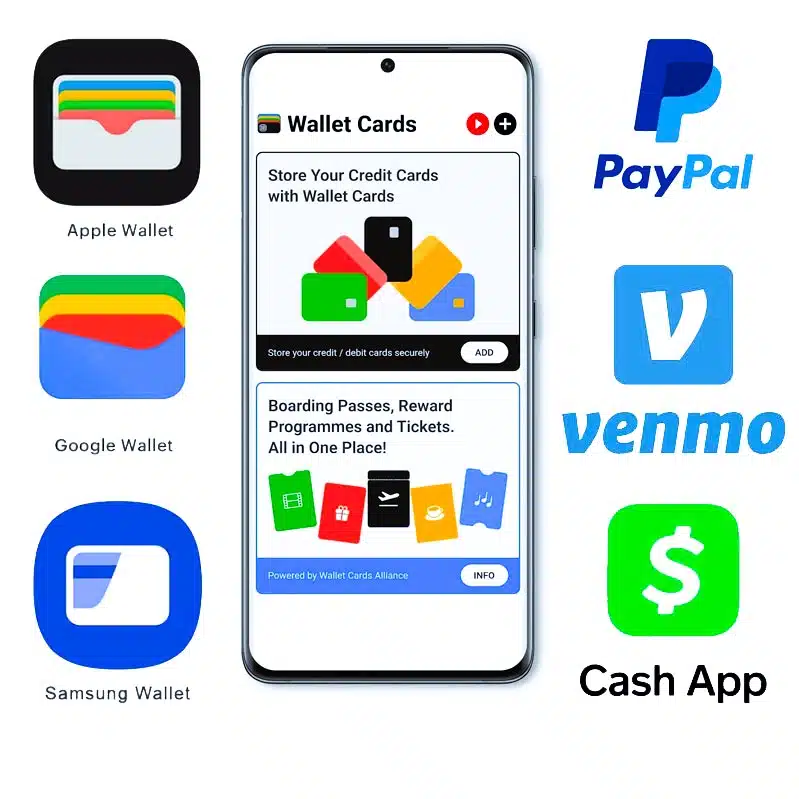Digital wallets provide a variety of benefits to consumers, including convenience speed, security, and record keeping, but they also pose risks for users and stand to be improved in several areas, says a study from Consumers Reports.
Consumers Reports evaluated six wallets—Apple Pay, Cash App, Google Pay, PayPal, Samsung Pay, and Venmo—from May 2024 through March. The evaluation consisted of consumer research, documentation review, user interface reviews, technical product tests, and direct engagement with the companies.
Among the reports’ key findings is that fraud monitoring and liability protection vary among wallet providers. The study also found that wallet providers’ fraud and liability protection may not be clear to users. That is an issue for consumers, as 76% of digital-wallet users in the United States use one or more wallets, while 29% use them at least once a week, and 24% use them once or more a month, Consumers Reports says.

Among the wallets providers evaluated, Cash App, PayPal, and Venmo monitor account and transaction activity for fraud, while Apple Pay, Google Pay, and Samsung Pay don’t, according to the study. In the case of the latter three wallets, responsibility for fraud monitoring falls to the card issuer involved in the transaction, the report says.
“We found that the big tech companies don’t commit to monitoring all transactions for fraud and don’t offer liability protection, but also don’t explicitly and clearly state that these safety obligations fall to the issuer of the underlying payment card,” Stephanie Landry, strategic lead, digital finance, for Consumer Reports says by email. “Without this explicit transparency, consumers may be confused about which entity to reach out to when they are having troubles.”
Landry adds that ApplePay, Google Pay and Samsung Pay are so-called pass-through wallets that act as a bridge between a user’s physical card and a merchant’s payment system, and are not under any “legal obligation” to monitor for fraud.
In contrast, Cash App, PayPal, and Venmo are so-called staged wallets and have a legal obligation to monitor for fraud. Staged wallets use a two-step process for transactions that involves acquiring funds from the user via a linked bank account or credit card before transferring funds to the merchant.
“Pass-through wallet providers do contribute to fraud monitoring by passing along additional information with the payment credentials, such as device information the card issuer can leverage when performing risk analyses,” Landry says. “[However], consumers may be confused about which entity to contact when they are in the stressful situation of seeing unauthorized transactions.”
Another key finding is the lack of data minimization among wallet providers. In these instances, wallet providers collect more information than necessary to provide the service and use that data for marketing purposes, according to the report.
“This exposes [wallet] users and leaves them more vulnerable in the event of data breaches,” Landry says. “Users also receive ads for other services the providers offer, services that the users may not need or want and that may not be the best fit for their financial lives.”
Consumer Reports recommends that wallet providers go beyond what the law requires when practicing data minimization. Secondary uses of data should be limited to fixing errors and performing internal research to improve customer experience, the study says. The study also recommends wallet providers offer in-app settings for users to control their privacy and exercise their data rights.
The study found that wallet providers could also improve their performance when it comes to supporting a consumer’s financial well-being. While all the wallets evaluated “have easy, in-app ways for users to see their payment history” and wallets with a stored balance feature have in-app ways for users to view their balance, not all wallets offer periodic summaries of transactions, which would help users track spending.
“The [in-wallet] apps could provide personalized spending insights and offer advice based on user behavior,” Landry says. “The apps could also offer savings features such as accounts, automatic transfers, and savings incentives like interest.”
The study recommends that wallet providers integrate features that actively support users’ financial well-being, including smart-alert systems for potential overdrafts, meaningful spending insights, tools for short-term saving and financial planning, and clear information about fees before transactions.





